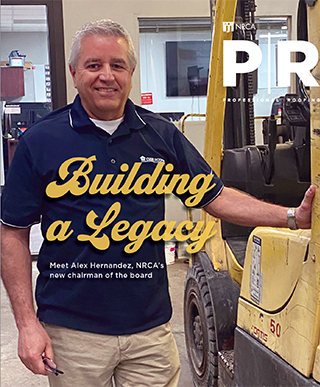There is one thing we can safely say with certainty about 2014: The forecasters got it wrong.
A year ago, we were reading about the robust year the residential construction market was going to have and the lackluster year expected for commercial and industrial construction. For the roofing industry, at least, that was pretty much exactly backward.
We learned again how much weather can affect our industry as business was virtually shut down in many parts of the U.S. during the first quarter of 2014—that the industry grew at all coming out of that deep hole is remarkable.
It was a year that saw continued growth in the green building movement and a continuing series of unintended consequences for the roofing industry. At the top of the list: use of lightweight structural concrete roof decks, which earn LEED® credits and, it turns out, can take years to become dry enough for roofs to be put on them.
With the commercial and industrial rebound came problems of prosperity, most notably a rapidly developing shortage of qualified workers. Some NRCA members report they turned down work because they couldn't find workers to do it. Others report job-site delays as other trades face their own workforce issues. It's a problem without a quick fix. Immigration reform would help but still appears to be an uphill battle.
2014 also brought a host of new federal regulations, making it more difficult for roofing contractors to spend time doing what they should be doing, which is installing quality roof systems. And the prospect for the coming year is even more new rules; one we might see will come from the Occupational Safety and Health Administration and will further regulate worker exposure to crystalline silica.
NRCA's political action committee, ROOFPAC, had a good year, with 60 of the 63 Congressional candidates it backed winning in November. Pro-business majorities in the House and Senate will make for a much more interesting 2015.
The year was a good one for your association. More members renewed their memberships than at any time during the past decade. We are developing a new tablet-based app that will allow members to access publications on the rooftop and anywhere else. We are doing much more to tell the story of the good work NRCA roofing professionals do. And we are stronger financially than at any time in our 129-year history.
As we head into the New Year, the industry has, at last, some momentum. Here's to this continuing (with perhaps an occasional dose of bad weather) and with our best wishes for your health, safety and success.
Bill Good is NRCA's executive vice president.



